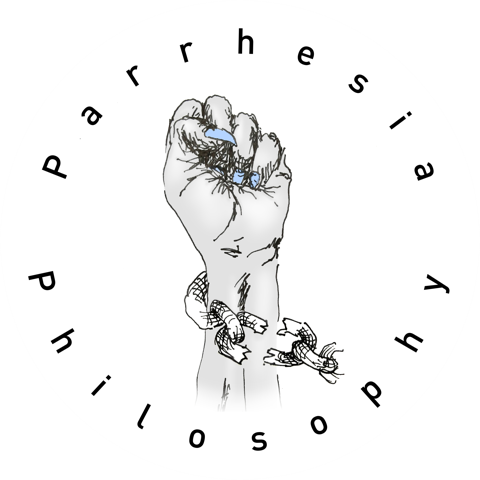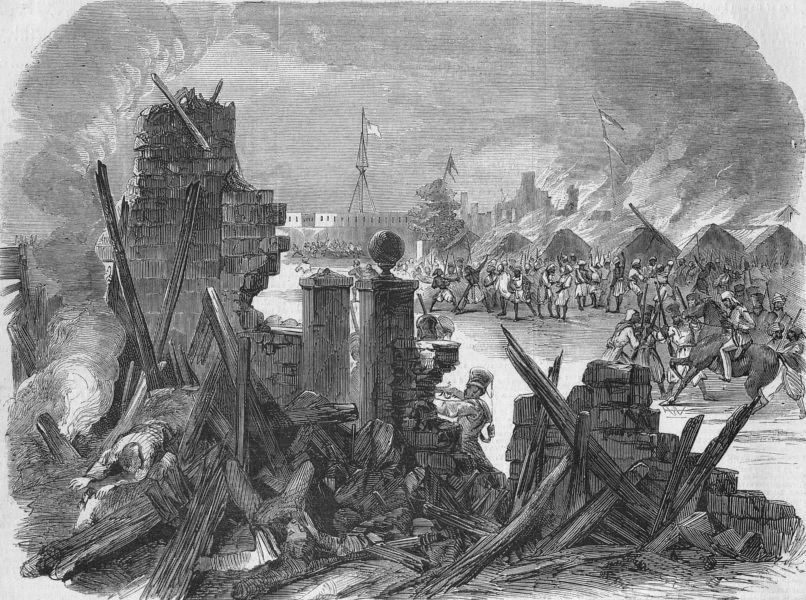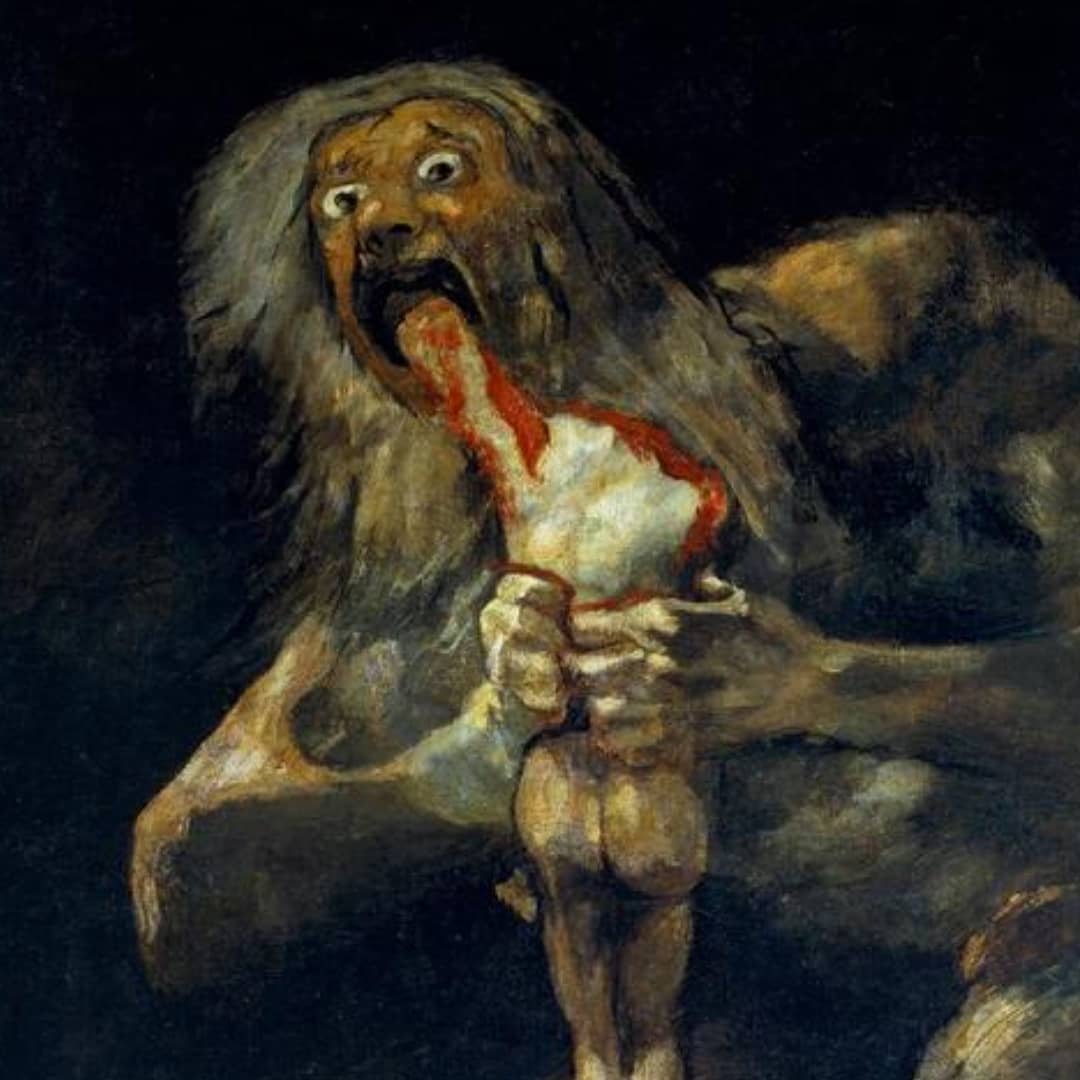 Autumn School Programme
Autumn School Programme
October-November 2022, Parrhesia, Berlin
One 10-hour course and two evening talks. For any questions please email This email address is being protected from spambots. You need JavaScript enabled to view it..
Payment may be made by credit card (via Paypal), Paypal or offline Bank Transfer. The two talks are also available via Eventbrite.
|
When: Tues 18 October - Tues 15 November 2022 Where: Gerichtstrasse 45, 13347 Berlin-Wedding (courtyard). U-Bahn: U6 & U9 Leopoldplatz; S-Bahn: Wedding How: All courses are taught in hybrid format (in person and on Zoom). Video recordings are made available for those unable to attend. Course readings can be accessed online before the school begins. Links to the Zoom classroom are sent out prior to the course starting. All payment must be made via credit card or Paypal account during enrolment. Also it's worth noting that Berlin (CMT+1) is 10 hours behind Melbourne time and 6 hours ahead of New York. |
Enrolment Fees
|
|
7:30-9:30 pm Wed 26 Oct |
TalkColonial and Decolonial Violence: How Anticolonial Thinkers Reinvented the Politics of Force Lecture by: Eraldo Souza dos Santos - Register via Eventbrite |
|
7:30-9:30 pm Mon 7 Nov |
TalkIs Enjoyment Antisocial? Marx and Freud as Critics of Ressentiment Lecture by: Samo Tomšič - Register via Eventbrite |
|
6-8 pm 5 Tuesdays 18 Oct-15 Nov |
CourseFoucault and Derrida in Couples Therapy with Freud Lecturer: Leon Brenner |
Talk Descriptions
Colonial and Decolonial Violence: How Anticolonial Thinkers Reinvented the Politics of Force
Wednesday 26 October, 2022, 7:30 – 9:30 pm
Lecture by Eraldo Souza dos Santos
How effective is the politics of anticolonial violence against imperial domination? Is radical change possible without violent methods? Can we conceive of postcolonial societies without the monopoly on violence that has traditionally characterized modern states? What subjectivities do violence and nonviolence give shape to?
From Gandhi to Fanon and beyond, these questions became key theoretical and practical problems to anticolonial thinkers in Africa, Asia, and the Americas. This lecture will retrace the process by which their political thought has radically reconfigured debates about political violence around the world from the 1920s onwards.
For better or worse, as we will see, we inhabit a philosophical imaginary of violence that took shape during processes of decolonization. But what to do, today, with this tradition that weighs on our shoulders? What has been forgotten and could be recovered from these histories and theories of violence
Bio: Eraldo Souza dos Santos is a writer and scholar currently based between Berlin and Paris. In his current book project, he aims at offering the first global history of civil disobedience. His writing on the history and politics of social movements has appeared in The Diplomat, The Philosopher, the Washington Post, World Politics Review, and elsewhere. (More here if needed).
Sepoy revolt at Meerut, 1857

Is Enjoyment Antisocial? Marx and Freud as Critics of Ressentiment
Monday 7 November, 7:30 – 9:30 pm
Lecture by Samo Tomšič
The talk will examine the intersection of psychoanalysis and the critique of political economy from the perspective of the respective encounter and engagement of Marx and Freud with the antisocial tendencies of the capitalist ‘social’ condition. The critique of capitalist antisociality seems to be a significant common ground between Marx’s mature critique of economic liberalism and Freud’s pessimistic vision of the modern cultural condition. An important meeting point between the two contexts, critical and clinical, is the concept of the drive, and notably its ‘capitalist vicissitude’, which consists in its fixation on a useless surplus-object and fuels its aggressive and eventually destructive actualization. Departing from this shared problematic, the presentation will then engage more extensively with ressentiment as the privileged affective expression of capitalism’s antisocial tendencies, and comment on the proliferation of antisociality in the shift from economic liberalism to neoliberalism, and finally to our present-day catastrophe capitalism.
Bio: Samo Tomšič is a Slovenian philosopher based in Berlin and Hamburg. He is currently interim professor of philosophy at the University of Fine Arts Hamburg and research associate at the Humboldt University Berlin. His research areas comprise political philosophy, critical theory, and theoretical psychoanalysis. Recent publications include The Capitalist Unconscious: Marx and Lacan (Verso 2015) and The Labour of Enjoyment. Towards a Critique of Libidinal Economy (August Verlag 2019/2021).

Course Description
Foucault and Derrida in Couples Therapy with Freud
Tuesdays 6-8 pm. Weekly from 18 October – 15 November (5 evenings)
Course by Dr. Leon Brenner
Description
Michel Foucault’s innovative approach to madness in Madness and Civilization greatly impacted the antipsychiatry movement of the 1960s and gave rise to the contemporary field of ‘mad studies’. It ignited a long dispute with Jacques Derrida and eventually drove Foucault to harshly criticize Derrida in the second edition of his book, deeply affecting their friendship. In response, Derrida rebuked the novelty of Foucault’s project in a series of essays, finally subordinating it to the same discourse it came to denounce: psychoanalysis. In this lecture we will discuss key factors in Foucault and Derrida’s long polemical argument over the question of madness. By doing so, the intersection of Foucault's theory of madness with Freud’s psychoanalysis will be shown to be very fruitful territory. In particular, there will be a focus on Foucault’s philosophical elaboration of a constitutive exclusion underlying the discourse on reason and unreason, as well as his insistence on that exclusion’s singular relationship with madness. This notion will then be developed in psychoanalytic terms augmenting the constitutive gesture that Freud attributed to the plurality of subjective structures elaborated in his metapsychology.
Week 1, Tuesday 18 October: Foucault’s archaeology and the history of madness
Week 2, Tuesday 25 October: Structuralism, closed-sets and constitutive exclusions
Week 3, Tuesday 1 November: Derrida’s post-structural polemic and Foucault ‘strikes back’
Week 4, Tuesday 8 November: Freud’s hospitality to madness out of the hospital
Week 5, Tuesday 15 November: The future of madness—Lacan and subjectivity
Suggested course reading
- Brenner, L. S. (2020). The autistic subject: on the threshold of language. Palgrave Macmillan.
- Derrida, Jacques. (1994). “‘To do justice to Freud’: The history of madness in the age of psychoanalysis.” Critical Inquiry, 20.2: 227–66.
- Derrida, Jacques. (2001). “Cogito and the history of madness.” Writing and Difference. Routledge. 36–76.
- Foucault, M. (2006). History of madness in the age of reason. Routledge.
- Freud, Sigmund. (1915). Repression. The Standard Edition of the Complete Psychological Works of Sigmund Freud, Volume XIV (1914–1916): On the History of the Psycho-Analytic Movement, Papers on Metapsychology and Other Works (pp. 141–58).
- Freud, S. (1924). The Loss of Reality in Neurosis and Psychosis. The Standard Edition of the Complete Psychological Works of Sigmund Freud, Volume XIX (1923–1925): The Ego and the Id and Other Works (pp. 181–8).
- Freud, S. (1925). Negation. The Standard Edition of the Complete Psychological Works of Sigmund Freud, Volume XIX (1923–1925): The Ego and the Id and Other Works (pp. 233–40).
- Lacan, J. (1997). The Seminar of Jacques Lacan, Book III, The Psychoses (1955–1956). Norton & Company.
- Jonas, Eric. (2015). “Historicity and Alterity: Revisiting the Foucault-Derrida Debate.” Constellations, 22.4: 586–98.
Dr. Leon S. Brenner is a psychoanalytic theorist and psychoanalyst from Berlin. Brenner’s work draws from the Freudian and Lacanian traditions of psychoanalysis, and his interest lies in the understanding of the relationship between culture and psychopathology. His book The Autistic Subject: On the Threshold of Language, is a bestseller in psychology in Palgrave Macmillan publishing in 2021. He is a founder of Lacanian Affinities Berlin and Unconscious Berlin and is currently a research fellow and lecturer at the International Psychoanalytic University (IPU) Berlin and the Hans Kilian und Lotte Köhler Centrum (KKC) at the Ruhr Universität Bochum. You can find more online lectures with Leon here.
Websites: Leonbrenner.com, Unconscious.berlin, Lacanberlin.com

